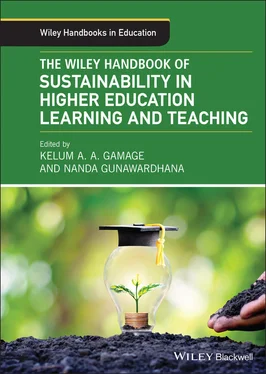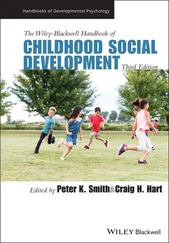The CO can be expressed as: CO = {CO1, CO2, CO3, CO4, CO5, CO6, CO7,…} where {CO1, CO2, CO3, CO4, CO5, CO6, CO7,…} are, respectively, COs of course 1, course 2, course 3, and so on. Similarly, we can also write the PO as a sum or union of the POs of various programs. In addition, the PO is attributed to a number of COs. There are multiple COs because of the number of courses offered in the program, each with specific objectives and learning outcomes. The SLO are used to assess the impact of teaching learning and bringing about change in learners or students.
3.1.1 Significance of OBE
In the last decade, competition among the young has become tough in the job market and candidates can perform badly, even if they are employed in a good workplace. This happens because they do not possess a set of appropriate skills. A candidate or graduate can get employed or receive a job offer, that might be based on a strong academic background leading to the first impression of them during the interview as being satisfactory; however, this does not mean that the candidate is competent. This is a gray area to which most academic organizations do not pay attention, concentrating more on strengthening academic performance. The true significance of the OBE framework lies in ensuring a holistic view of studies; it not only requires good academic performance but a set of skills as well. The most important set of graduate skills needed to ensure that the SLOs are measurable, are:
1 Strong written and verbal communication (Coughlan 2011; Hall and Tandon 2017; TWI2050 – The World in 2050 2018): This is needed to present the knowledge acquired or product developed. Communication plays a significant role in the overall growth of a candidate and thus must be assessed carefully during a student's study.
2 Critical and conceptual thinking (Franco et al. 2019; Kioupi and Voulvoulis 2019): When students are exposed to the teaching learning process (TLP) of observable and assessable systems, then the development of critical thinking is inevitable. The ways students learn and think out of the box in a different manner, determine their ability to think critically.
3 Fundamental knowledge (Franco et al. 2019; Kioupi and Voulvoulis 2019; UNICEF 2019): Procedural study with a focus on understanding rather than rote learning, helps develop conceptual or fundamental knowledge of a subject.
4 Self‐initiative for learning and knowledge upgrades (Coughlan 2011; Franco et al. 2019; UNESCO 2019). This can be developed by engaging students in suitable activities.
5 Strong motivation, teamwork and integrity (TWI2050 – The World in 2050 2018):
6 Problem‐/project‐based learning approach: Students should be given the opportunity to handle tasks individually or in a group, with certain objectives to be achieved and, of course, under the supervision of a teacher.
7 Values in professional and personal life: The ultimate aim of education is to improve the quality of life of self and others in society, and thus values have the same importance as academic aptitude does. Values can also be developed through a number of societal and technosocietal events aimed at improving the societal life.
8 Positive attitude (United Nations Development Programme 2017): Aptitude alone does not work, but aptitude combined with a positive attitude assists someone to attain growth. A greater height in sustainable growth can be achieved with a positive attitude in the workers. A positive attitude can also be learned during studies with the help of a number of co‐curricular and extracurricular activities.
9 Research‐based approach (Coughlan 2011; Wright 2014; UNESCO 2016; Hall and Tandon 2017; TWI2050 – The World in 2050 2018; Franco et al. 2019): Low‐level research‐centric tasks need to be assigned so that the students can understand the role of research and its importance in improving the quality of life through various advances in science and technology.
10 Ability to think outside the box, and much more (UNESCO 2019).
This list is not limited and there might be more skills that would empower the students. The OBE framework can include schemes for direct and indirect assessment, measurable outcomes, observable changes in the students, and positive ripples in the learners. The major salient points related to the importance of OBE are:
It is a system of education in which student outcomes need to be seriously evaluated.
The evaluation of the SLOs indicates the competence of the students or learners.
The outcomes help students as well as employers in choosing the appropriate positions.
The system requires the active and considerable participation of learners and teachers.
OBE provides a framework where one can truly assess the skill development, growth, and overall progress of students in any academic organization. The role of OBE is pertinent in evaluating the employability of graduates that further ensures that they not only are suitable for jobs but can also achieve sustainable growth in the job place. OBE can therefore be considered as an important tool for measuring the abilities of sustainability in students in the universities or any academic study place (McKeown 2006; Nations 2015; Swaminathan and Kesavan 2016; UNESCO 2016; Rieckmann et al. 2017; van't Land and Herzog 2017; UN and Australian Government 2018; Franco et al. 2019; Kioupi and Voulvoulis 2019; UNESCO 2019).
3.1.2 Sustainable Growth in Higher Education
According to SDG 4 of the SDGs (McKeown 2006; García Reyes 2013; Wright 2014; Nations 2015; UNESCO 2016; van't Land and Herzog 2017; TWI2050 – The World in 2050 2018; UN and Australian Government 2018; Marshall and Oxfam Education 2019; UNESCO 2019), sustainability in education is mainly controlled by curriculum (Franco et al. 2019), teaching methods (Coughlan 2011; García Reyes 2013; Marshall and Oxfam Education 2019), extracurricular activities, and learning assessment rubrics. To attain measurable outcomes in the students, we need to work on each of these categories very carefully. Despite a lot of challenges in achieving SDG 4, UNESCO (McKeown 2006; UNESCO 2016; Rieckmann et al. 2017; UNESCO 2019) has suggested wonderful guidelines and recommendations as to how the outcomes can be truly achieved and sustainability can be practiced. Students also need to be made aware of societal responsibilities (Coughlan 2011; TWI2050 – The World in 2050 2018; Kioupi and Voulvoulis 2019; UNESCO 2019) and responsibilities toward nature and climate change (UNESCO 2019). The following are recommended as major requirements for achieving sustainability in higher education:
Formulating the achievable, measurable and pragmatic goals.
Setting the objectives for learning keeping in mind about SDG 4.
Involving all the stakeholders while writings POs and PEOs, not just getting online. feedback but also having interactions at regular intervals.
Providing a holistic ambience of problem‐based, research‐based, and project‐based learning.
Motivating learners about the practical significance of OBE and SLO.s
Outreaching to institutes of eminence which are actually practicing OBE in a true sense.
Mapping the POs/SLOs with PEOs using suitable rubrics or mechanisms.
Participating significantly on the part of policy‐makers, revisiting the educational policies and modifying them as and when needed.
3.2 Pragmatic Mapping of Student Learning Outcomes and Learning Objectives
As we have discussed throughout Section 3.1, SLOs play a very significant role in the future prospects of the students and graduates. There are practices in SLOs and in their attainment that can be seen in the accreditation documents of most universities where the record of mapping between the student learning objectives and their learning outcomes is highlighted with the help of several examples from various programs and departments. However, the important thing in all the practices that are reported is the actual impact of mapping and the pragmatic approaches used in developing SLOs in the students. The activities that directly or indirectly impact the SLOs of the students are broadly:
Читать дальше












